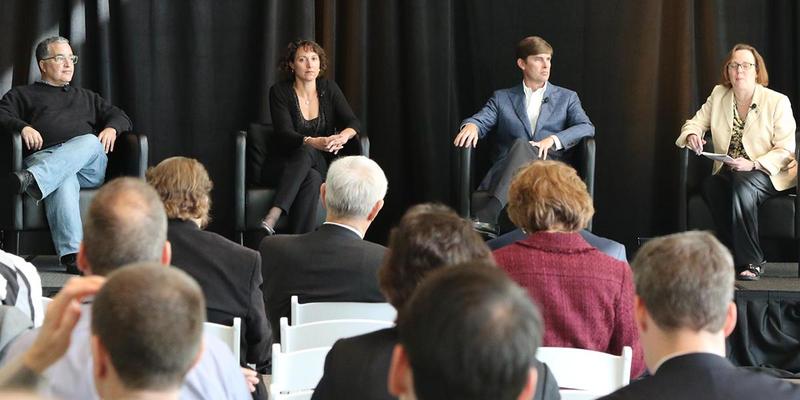Experts Predict Next 25 Years Of Digital Life At Ga. Tech

Phillip Alvelda, Emily Bazelon, David Harvey, and Beth Mynatt spoke at Thursday’s Wellbeing and Autonomy (How We Live) panel.
BRENNA BEECH / WABE

CREDIT TASNIM SHAMMA / COURTESY OF GEORGIA TECH
About 25 years ago, the birth of the world wide Web disrupted everything.
More than 250 researchers and experts are gathering at Georgia Tech’s College of Computing Friday to predict the next 25 years in the digital age.
Georgia Tech’s College of Computing Senior Associate Dean Charles Isbell says we’re already looking at the future.
The school is getting ready to start construction next year on a High Performance Computing center, which will be used for computer research programs, in Midtown Atlanta.
“We’re trying to construct a building that is as vertical as it is horizontal so that people are constantly moving up and down as well as left and right to interact with others,” Isbell said.
Isbell organized the Future of Computing symposium to celebrate the College of Computing’s 25th anniversary.
“Let’s not look back,” Isbell said. “We know that we’ve done well, and let’s try to see how the rest of the world sees the future so that we can think hard about the things that we might do to help to realize that future.”
Isbell said panelists predict that not only will buildings look very different, but we’ll also have smarter clothes and have different forms of entertainment. Panelists will also discuss the implications ─ like cyberbullying ─ of greater surveillance and ubiquitous technology.
He added that panelists will also predict how computer science education will change. Knowing how to code will be just as important as knowing how to read and write in order to be considered “literate.”
“It’s something that every single person, no matter what they do, will have to understand, in the same way that everyone has to know how to add, subtract and know how to read,” Isbell said.








